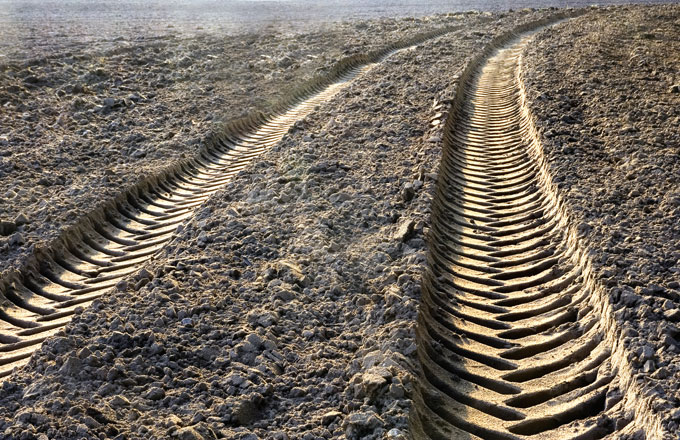What’s going on with Shannon LNG?

25 June 2021
Well – it’s been quite a news week for all things LNG-related.
In case you missed it, it looks like the developers of the controversial Shannon LNG terminal are gearing up to again apply for planning permission.
It raised a whole lot of questions – so we did a lot of reading, a lot of calling around, and here’s what we came back with.
Okay, what exactly is LNG?
LNG, or liquified natural gas, is a fossil fuel. It can be acquired through fracking, which is when you inject sand, pressurised water and various chemicals into shale rock to force gas out of the ground and up to the surface.
A number of studies have linked fracked gas specifically to health issues, earth tremours and carbon and methane emissions.
Proponents of fracked gas argue that the fuel itself emits less carbon dioxide compared to oil or coal when burned, and therefore argue it could work as a “bridge fuel” as energy systems transition to renewables.
However, a 2019 report from Oil Change International disputed the claim and called it a “bridge to climate disaster”.
Alongside the health and local environmental impacts, methane leaks throughout the extraction and production of LNG.
Methane has a much higher immediate warming impact than carbon dioxide. It’s estimated warming potential is 84 to 87 times greater than that of carbon dioxide over a 20 year period.
And just last month, the United Nations highlighted that reducing methane in the atmosphere would rapidly reduce the rate of temperature increase globally given its short lifespan.
Right. So developers want to build a terminal for this type of fuel in the Shannon estuary?
Yes, they do and they’ve been down this road before.
The terminal was initially given ten-year planning permission back in March 2008. However, it still hadn’t been completed, so our national planning agency, An Bord Pleanála, granted it a five-year extension in 2018 in order to allow for its completion.
Friends of the Irish Environment (whose name you might recognise – they took on the well-known Climate Case against the Government and won last year) challenged the extension.
They argued that both the Irish state and the European Union did not conduct independent sustainability, climate and cost-benefit analysis of the terminal before it was added to the European Union’s Fourth Project of Common Interest (PCI) list.
Once on this list, a project’s planning can be streamlined and it can avail of a multi-billion euro funding pot.
However, in order to make it on there, you have to do the aforementioned assessments, which as we know were not done.
A High Court judge ultimately sided with Friends of the Irish Environment and quashed the planning permission for the terminal in November 2020.

Okay, I’m up to speed. So what’s the latest now?
Reports came in earlier this week that the US company backing the project is ready to apply for planning permission.
New Fortress Energy confirmed that the terminal would be privately funded and its application is set to be fast-tracked under a strategic infrastructure designation.
According to The Irish Independent, New Fortress Energy told An Bord Pleanála that the development would not depend on fracked gas and that “it is confident that it can source gas from non-fracked sources” in order to meet energy demand.
Tony Lowes of Friends of the Irish Environment said that the proposed terminal, “ticks all the wrong boxes”.
To already meet existing climate goals will take an incredible amount of coordinated action, and the current climate situation in Ireland is “so drastic and so urgent that considerations of further fossil fuels are undurable,” he told The Green News.
Friends of the Earth Ireland Director Oisin Coghlan urged people to see the application as “marketing hype” and added that New Fortress Energy sound like they are “trying to convince themselves as much as their investors and the media that there is a path forward for their project”.
We reached out to New Fortress Energy for a comment, but did not receive a reply.
And what are the chances it gets approved?
Well first thing’s first – the outcome has not been decided so we don’t know what will happen as of yet.
But one of the key things to hone in on is the Government’s recently published LNG policy statement.
It was issued last month and included a moratorium on the development of fracked gas importation pending an energy security review.
However, many campaigners have long-held the view that any sort of ban on LNG needs to go down a legislative route.
Most recently, the Joint Oireachtas Committee on Climate Action (JOCCA) recommended just that back in December for the newly-published and yet-to-be-signed-off Climate Bill.
The Department of the Environment, Climate and Communications said that such a ban could not “be put in place at this time” due to European energy laws.
According to the Department, the policy statement was notified to An Bord Pleanála following its approval by Government in May. Looking at AIE records from Safety Before LNG’s Johnny McElligot, the statement was sent by the Department of Housing to the planning body on 26 May, and An Bord Pleanála replied the very next day.
A Department spokesperson went on to say that the planning body would be required to consider relevant Government policy in planning decisions.
So it’s something that will be taken into account and considered, but there’s no guarantee the policy statement alone will be enough on its own when it comes to An Bord Pleanála’s final verdict.
A lot will hinge on the aforementioned energy security review, but Friends of the Earth say they’re confident that a review based on science “rather than the agendas of fossil fuel companies will conclude that Ireland should not lock itself into new fossil gas infrastructure”.
“Any credible energy security review needs to be based on supply and demand scenarios that are in line with the Paris Agreement and legal targets in the new Climate Bill,” Director Oisin Coghlan said.
He also stressed the International Energy Agency’s latest report, which recently concluded that no new investment in fossil fuel infrastructure should be built after this year if climate breakdown is to be contained and the goals of the Paris Agreement met.
According to a spokesperson to Minister for the Environment Eamon Ryan, the policy makes it “crystal clear that it would not be appropriate to permit or proceed with the development of any LNG terminals in Ireland” pending the energy security review.
“This policy statement has been communicated to An Bord Pleanála who are required to take it into account under section 34 of the Planning and Development Act,” they added.
What happens if it does get approved?
If An Bord Pleanála does approve the development, there is always the option for campaigners to bring the decision to judicial review.
Take the Edenderry Power Station case as an example. The plant’s permission to burn peat was quashed in 2016 following a High Court review of An Bord Pleanála’s initial approval.
A High Court judge concluded that the 1.2 million tonnes of peat per year the plant would burn should have been included in its environmental assessment.
So it would be feasible for a challenge to be brought against the terminal, should its planning permission be granted.
We’ll be keeping a close eye to see what exactly unfolds next and as always, we’ll keep you in the loop.
[x_author title=”About the Author”]







